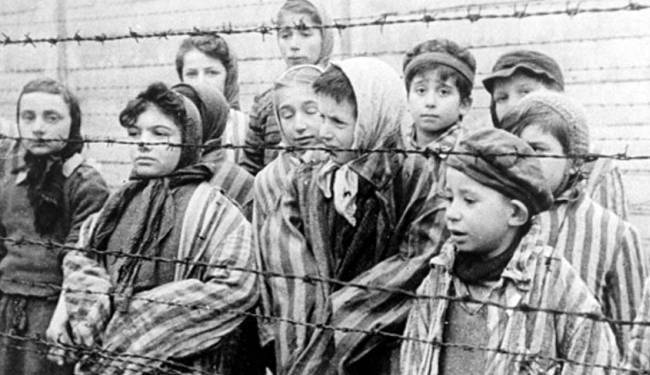Genocide is the most serious form of crime against humanity and international law.
Hokolaust is a paradigm of genocide.
The Holocaust against European Jews is the most organized, massive and systematic crime of genocide in the long history of genocide.
The Holocaust against the Jews was carried out in the period from 1933 to 1945. It was a period of severe economic, social, political and moral crisis. Society was looking for a new vision and a new visionary.
Adolf Hitler appeared, fascism and Nazism with the "final solution of the Jewish question" in the "solution" of which about six million Jews and millions of other peoples were killed. Fascism revitalized those oldest deposits in the being of the nation. Her dark passions, instinctual driving forces, her closed-mindedness, xenophobia and aggressiveness.
Death was the leitmotif of the Nazi regime.
The Holocaust of the Jews both in Bosnia and Herzegovina and in Europe in general was no historical accident. The Holocaust was carried out because some people wanted it, planned it and carried it out. In this regard, science must collect signs and evidence that the civilization process is, among other things, a process where violence is manifested. Genocide is a social phenomenon that has the intention of repetition. Sometimes it repeats itself with the same actors and their unchanged positions. Sometimes the actors remain the same, but the position of the perpetrator and the victim has changed. There are situations when genocide is carried out with completely new actors.
In November 2005, the United Nations General Assembly unanimously adopted a Resolution marking January 27 as International Holocaust Remembrance Day. On that date in 1945, Soviet troops liberated the infamous Auschwitz camp. The aforementioned UN resolution was the culmination of the activities that Jews had been conducting individually and at the national level for sixty years. For a full sixty years, they worked on discovering the historical, cultural, psychological, and civilizational causes that made the pogrom of the Jews possible, but also on finding a suitable remedy so that it would never happen to anyone again. The Jews persistently searched for escaped criminals and brought them to the Court of Justice. There was no dilemma as to who was the executioner and who was the victim. The Jews literally turned over every stone to find all the culprits, identify the victims, determine where every brick of the destroyed synagogue ended up.
The Jews should be congratulated and definitely learn from them for their perseverance and persistence in order for the truth to come to light and for justice to be served.
A characteristic condition for all variants of genocide is that recognition is difficult to come by. Even harder to catharsis. It is easier to resort to schismogenesis, i.e. mutual accusations, which ends with some new genocides. We must all look into the eyes of the victims, but also ourselves, first of all.
We must finally learn one of the most important lessons that we have so far persistently avoided.
We must learn a lesson and make sure it never happens again.
In this regard, and on the occasion of commemorating January 27 - Holocaust Remembrance Day, the Institute for Research of Crimes Against Humanity and International Law of the University of Sarajevo organizes and participates in a series of activities every year to honor the victims of the Holocaust, as well as to further study the crime. committed on the territory of Bosnia and Herzegovina during the Holocaust.
This year, in view of the epidemiological situation related to COVID-19, the Institute for the Research of Crimes Against Humanity and International Law of the University of Sarajevo, in cooperation with the Jewish community in Bosnia and Herzegovina, is organizing the commemoration of January 27 - Holocaust Remembrance Day.
PROGRAM TO CELEBRATE THE 27TH OF JAUNAR - THE DAY OF REMEMBERING THE VICTIMS OF THE HOLOCAUST
Opening of the exhibition Concentration camps, places of suffering of the Jews of Bosnia and Herzegovina, author Eli Tauber in the hall of the Rectorate building - January 26, 2021 at 11:00 a.m.
Round table Suffering of the Jews of Bosnia and Herzegovina in the Holocaust, January 26, 11:30 a.m. - 1:30 p.m., in the University Senate hall:
Address: Rector of the University of Sarajevo, prof. Ph.D. Rifat Škrijelj;
Address: Academician, prof. Ph.D. Adila Pašalić – Kreso;
Prof. Ph.D. Rasim Muratović, director of the Institute for Research of Crimes Against Humanity and International Law of the University of Sarajevo, presentation on the topic: Understanding the concept of evil in the work "Holocaust in Bosnia and Herzegovina", by Eli Tauber;
dr. Sabina Galijatović, Research Associate, Institute for Research of Crimes Against Humanity and International Law, University of Sarajevo presentation on the topic: Legal framework for committing crimes against Jews in Bosnia and Herzegovina;
Mr. Lamija Muftić, expert associate, Institute for Research of Crimes Against Humanity and International Law, University of Sarajevo, presentation on the topic: "Deportations of Jews in Bosnia and Herzegovina";
dr. Eli Tauber, adviser for culture in the Jewish community of Bosnia and Herzegovina. Presentation on the topic: "Camps and places of suffering of Bosnian Jews".
The delegation of the Institute for the Research of Crimes against Humanity and International Law of the University of Sarajevo headed by the director of the Institute, prof. Ph.D. Rasim Muratović will visit the former Kruščica concentration camp near Vitez and lay flowers on the memorial to the victims of fascist terror on January 27, 2021 at 12:00 p.m.
